How High Can You Fly?
I’d like to take this discussion back to the Newbery manual.
If a book is challenging, and suitable for 13-14-year-olds but not for younger readers, is it eligible? Yes; but it can be given an award only if it does what it sets out to do as well as or better than other, younger books that are also eligible.
A book for older readers can often be much more sophisticated than a book for younger readers and I think this last clause warns against the tendency to be seduced by these more sophisticated books. Just because an older book can make greater demands on its audience doesn’t necessarily make it better than an excellent book for younger readers.
ADVERTISEMENT
ADVERTISEMENT
Does LIPS TOUCH do what it sets out to do better than WHEN YOU REACH ME does what it sets out to do? Does LIPS TOUCH do what it sets out to do better than THE DUNDERHEADS does what it sets out to do? I think they all three succeed marvelously, and I think you could make a solid case for any of them, but I have no problem with giving WHEN YOU REACH ME preferential treatment because it more closely fits our preconceptions of what a Newbery Medal book is (or perhaps I should say that the realist in me knows that the consensus process will preference this book over the others). But, where the fiction is concerned, why can’t LIPS TOUCH and THE DUNDERHEADS be Honor books rather than several inferior middle grade novels? And then, too, why can’t we apply the same logic to bolster the chances of the very youngest books? Does WHEN YOU REACH ME do what it does better than THE DUNDERHEADS? (I have used LIPS TOUCH, WHEN YOU REACH ME, and THE DUNDERHEADS here as examples of books for–to speak in ALSC Notable parlance–younger readers, middle readers, and older readers, but I could have used any of the excellent titles this year to make the same point.)
Back to LIPS TOUCH and the Newbery manual.
* Is there any 14-year-old for whom this book is suitable?
This book is suitable for children ages 12-14 and in some cases for 10- and 11-year-olds.
* If so, is it distinguished enough to be considered?
Yes.
* If so, exactly what 14-year-olds would respond to it, and why?
It’s not an age thing. It’s a fantasy thing. One full-grown imagination is speaking to another.
A book may be considered even though it appeals to a fairly small part of the age range if the committee feels that
* it is so distinguished that everyone of that age should know the book; or
No.
* it is so distinguished, in so many ways, that it deserves recognition for the excellence it provides to a small but unique readership; or
Yes.
* it is exceptionally fine for the narrow part of the range to which it appeals, even though it may be eligible for other awards outside this range. Yes, and I’d like to particularly note that one of the awards implied in that statement is the Printz Award.
I’d like to add a final note about the illustrations in LIPS TOUCH. I’m still pondering how they age the story and how they affect the sophistication of the book. Preceding each story is a series of illustrations that preview certain parts of each story–the exposition, the backstory. These snapshots force the readers to make various predictions about the literary elements in each story. Who are these characters? Where is this story set? What’s happening? (To use reading teacher jargon, it’s like having an anticipatory set built into the book.) And, of course, the reader may return to the pictures during or after the reading and reflect further on the relationship between the text and the pictures.
Filed under: Uncategorized
About Jonathan Hunt
Jonathan Hunt is the Coordinator of Library Media Services at the San Diego County Office of Education. He served on the 2006 Newbery committee, and has also judged the Caldecott Medal, the Printz Award, the Boston Globe-Horn Book Awards, and the Los Angeles Times Book Prize. You can reach him at hunt_yellow@yahoo.com
ADVERTISEMENT
ADVERTISEMENT
SLJ Blog Network
Name That LEGO Book Cover! (#53)
Cover Reveal and Q&A: The One and Only Googoosh with Azadeh Westergaard
K is in Trouble | Review
Fighting Public School Book Bans with the Civil Rights Act
ADVERTISEMENT



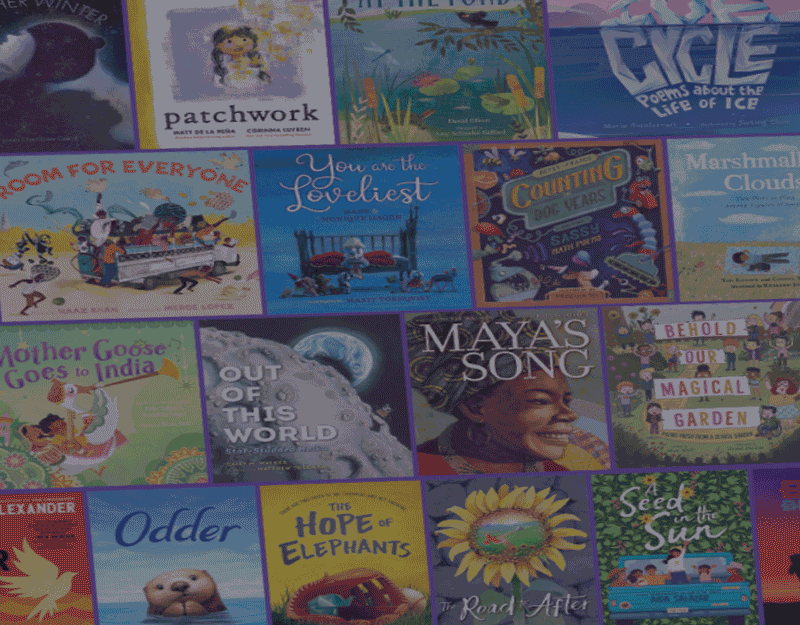
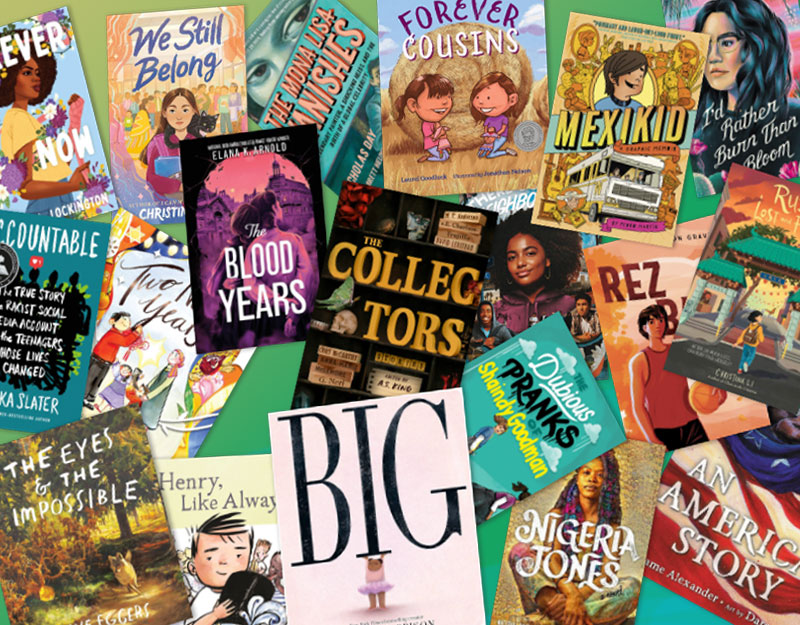
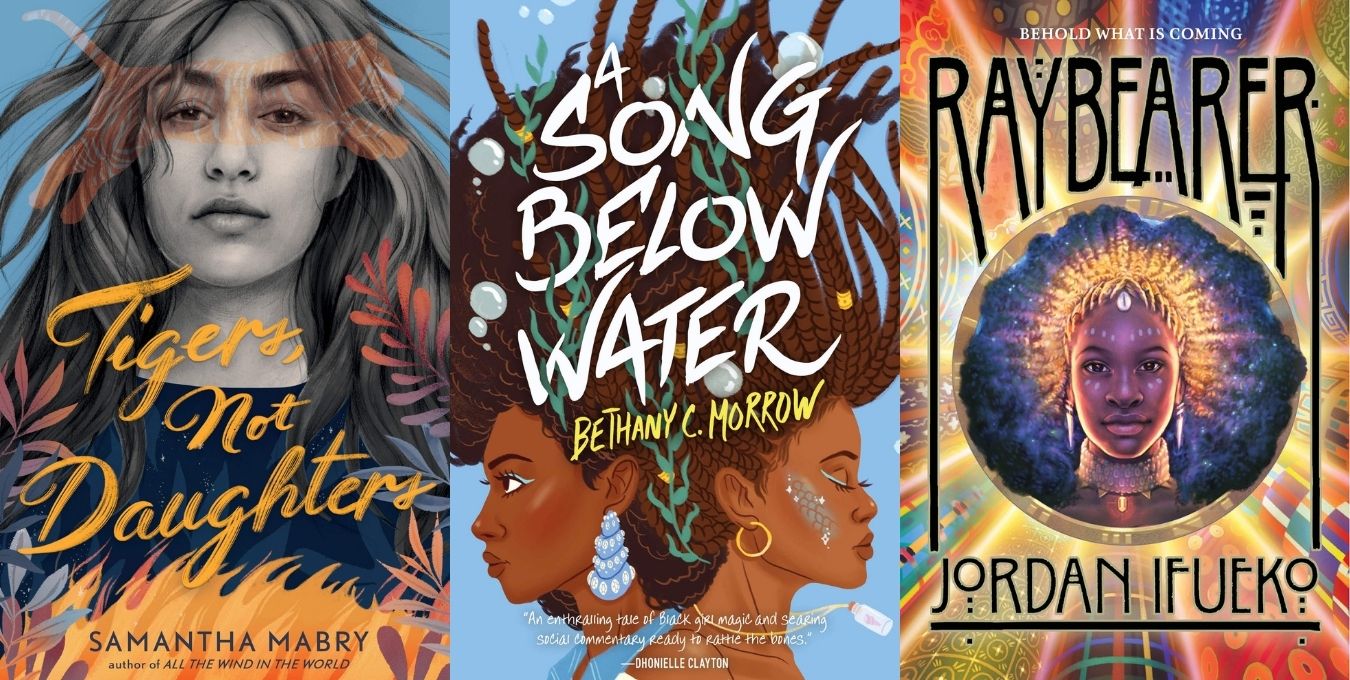
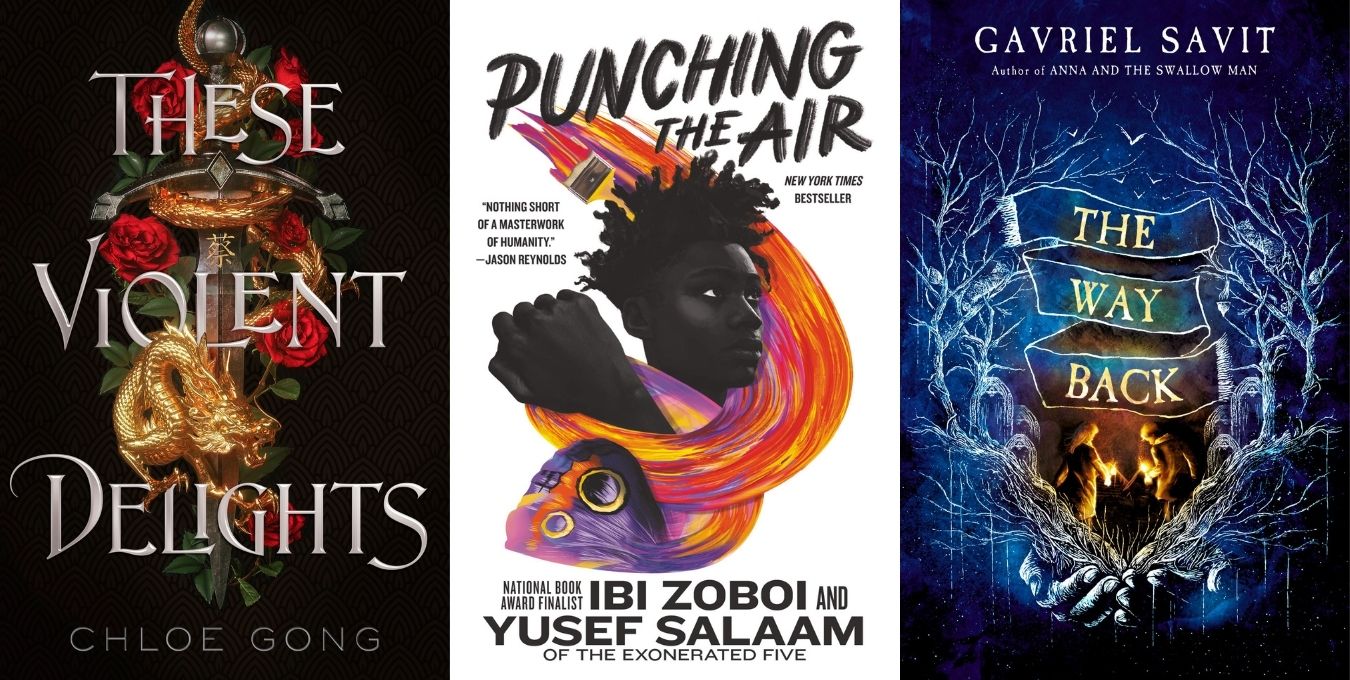
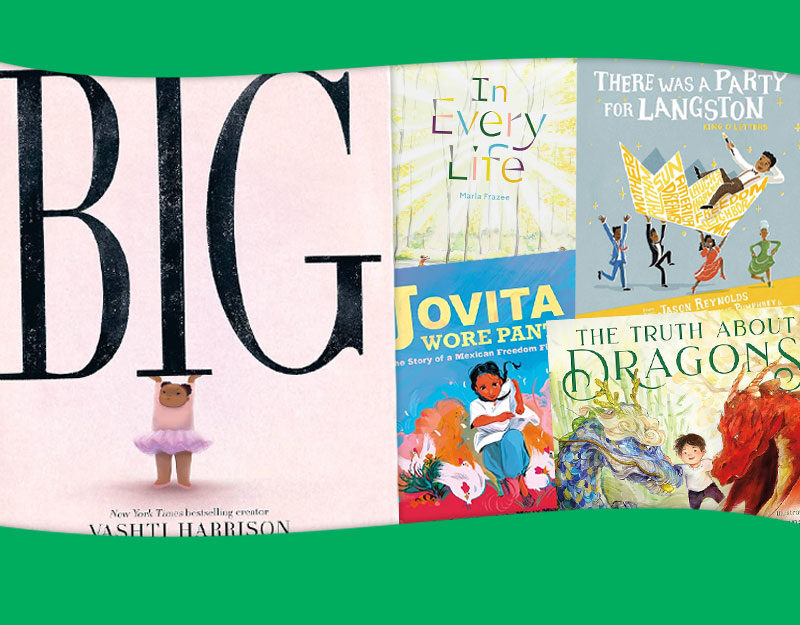
I’ve now read the first two stories of LIPS TOUCH. Wow! I have to admit my gut reaction would have been too old for the Newbery (all that wanting), but other than that definitely distinguished.
I’m curious. Does the Printz have any conditions about considering only the text? I’m assuming not since a graphic novel has won.
I am reading it right now and I’m finding myself torn . . .
I definitely think LIPS TOUCH is too old for Newbery audience, but then I can’t help but keep comparing it to THE GRAVEYARD BOOK and I had no problem with that book winning, despite the dark, somewhat adult themes going on in there (specifically, the haunting first chapter of “the man Jack” murdering Bod’s family). I don’t know what it is about LIPS TOUCH that’s gotten me worked up about the whole age thing . . .
I just think the language used is kind of, eh . . . The words “rape”, “hell”, and “freak-ass” appear within the first 20 pages of Goblin Fruit. Personally, I’m really into the book, but Newbery, I don’t know.
The Printz Award allows you to consider the book holistically. The year that I was on the Printz committee, I personally thought very highly of two books that the Caldecott committee recognized: THE INVENTION OF HUGO CABRET and THE WALL.
I promise you that “children” all know the words “rape” “hell” and “freak-ass.” I don’t think those are the deal-breaker.
I’ll have to reread everything fully to respond to Jonathan’s question to me in the last post, about why I feel the theme in Lips Touch may not be as distinguished for a child audience as the themes in some of our other books (say, WYRM and Claudette Colvin). I just have the sense that to even a fourteen year old, the themes in this book are a little flat. Not bad at all, just flat…flatter, that is, than in some of the others. Jonathan: what do you think of “interpretation of theme” in LIPS TOUCH?
Jonathan pointed out to me in a comment in an earlier post that while I read that final story in Lips Touch as being full of YA/adult themes, “children” would read it as invasion of the bodysnatchers. I chuckled then, but I think what Nina has said since makes me rethink this. I mean, is that the true level of the book? There’s way more to it than just the merging and such of two beings in one body.
While kids may read past kissing, love, and sex (and other more “adult” themes), it seems to me if those themes are what make the book truly distinguished than it isn’t for the Newbery audience.
The Graveyard Book seemed squarely in that audience’s range to me. The kids I read it too totally got the growing up and on theme of the book even as they enjoyed the horror aspects of it at a very viceral level. If they are mostly getting that sort of reaction to Lips Touch it seems to me they’ve missed the heart of the book and should be reading it when they are older.
This is rushed (written as my class watches “Prince Cinders) and so I hope it makes some sort of sense.
I think children can grasp the themes of the first two stories just fine, while the third one is harder. The first story is a play on the same theme as THE GRAVEYARD BOOK, growing up and embracing life, however dangerous it may be. The ethical dilemmas of the second story are fascinating and provocative–and certainly within the grasp of child readers. I already have two readers on LIPS TOUCH with two more coming along. Once they finish the book, I will discuss the themes of the book with them and report back more fully.
I think CLAUDETTE COLVIN is stronger thematically for a child audience, but I don’t think WHEN YOU REACH ME is. Regardless, I don’t have any problem with people ranking both books ahead of LIPS TOUCH on their Newbery ballot. What I don’t want to see, however, are blatantly inferior titles.
“Regardless, I don’t have any problem with people ranking both books ahead of LIPS TOUCH on their Newbery ballot. What I don’t want to see, however, are blatantly inferior titles.”
But if LIPS TOUCH is deemed “too old”, than books ranked ahead of it in Newbery consideration will be ranked ahead of it because they are ELIGIBLE for the award, whereas LIPS TOUCH will not be.
But neither the chair nor the committee as a group make a decision about whether it is too old. You discuss the issue, much like we have here, and then you proceed to a secret ballot with three votes. If enough people feel strongly enough that the book is for children and that it is distinguished then it can punch through to Newbery recognition. People who do not vote for the book will do so for a variety of reasons. Some will think the book is too old. Some will have problems with various literary elements. And some will just happen to like several titles better than LIPS TOUCH. The same would hold true for A SEASON OF GIFTS, too. If there is not enough support for a title prior to voting then books can be taken off the table, but otherwise the voting process forces consensus. Once the voting starts, any book without votes drops off the table automatically. You build around the titles with the most support.